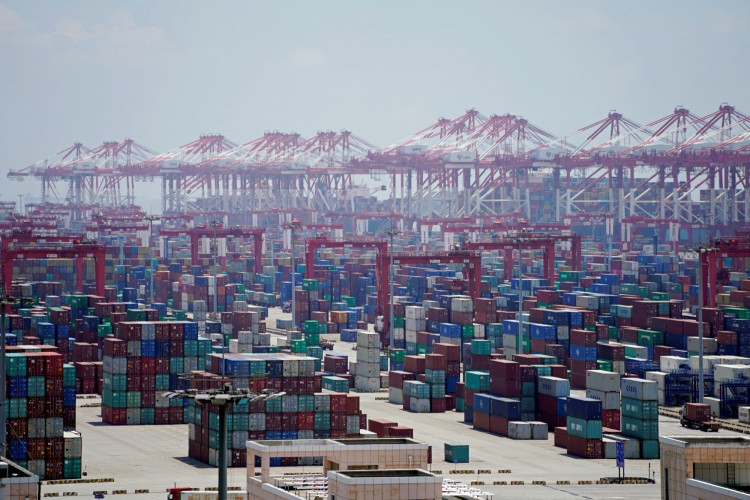China's finance ministry announced on Thursday that the nation will modify import and export duties on a few products as of Jan. 1 in an effort to advance development and boost domestic demand.
The adjustment, which has been approved by the State Council, modifies some products' import and export duties and establishes new tariff items, including white tea, jasmine tea, surgical robots, laser radars, and vegetable seeds.
The move, according to a statement from the commission, intends to optimize the nation's tariff structure and adjust to the requirements for industrial development and technological innovation.
According to the tariff commission of China's state council, or cabinet, export taxes on aluminum and aluminum alloys will also be increased, the ministry announced in a statement.
The current import tariff on seven types of coal will remain in place until Mar. 31 next year, with duties implemented for most favored nations beginning on Apr. 1, according to a second statement from the finance ministry.
As the world's second-largest economy confronts a surge in COVID-19 infections following Beijing's abrupt U-turn on tight controls, it will set tariffs on some anti-COVID medication ingredients to zero, easing the cost burden on patients.
Domestic hospitals and funeral houses were under great strain as the increase depleted supplies.
According to the annual Central Economic Work Conference, policymakers have pledged actions to raise domestic demand and prioritize a rebound in consumption in the face of pressure from falling demand, supply shocks, and deteriorating expectations.
Coffee makers and juice extractor import taxes will be further reduced to accommodate consumer demand, according to the tariff commission.
Consider white tea and jasmine tea as examples. In recent years, the two goods have experienced expanding exports and rising appeal in the international market. The only teas that are mentioned as tariff products at this time are black tea, green tea, oolong tea, and dark tea.
The addition of distinctive Chinese farm products like white tea and jasmine tea to the list, according to Zhang Xuebiao, a researcher with the Agricultural Information Institute under the Chinese Academy of Agricultural Sciences, is helpful for fostering the development of specialty farming and boosting corporate brand awareness.
After the adjustment, the country's total tariff items will rise to 8,948, according to the statement.
China has made the decision to further lower the tariffs for most favored nations on 62 categories of information technology items starting on July 1 of next year as competition with the United States on technological issues increases.
By taking this action, China's overall tariffs will decrease from 7.4% to 7.3%.





